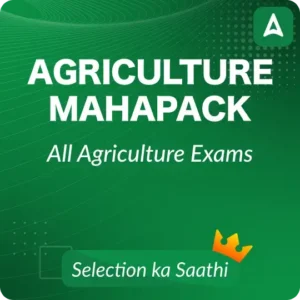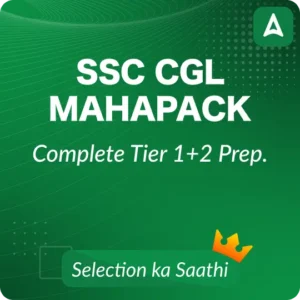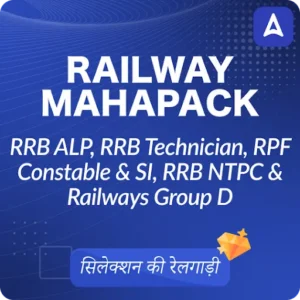The National Bank for Agriculture and Rural Development (NABARD) plays a crucial role in promoting agriculture and rural development in India. The bank is expected to soon release the NABARD Grade A and Grade B officer notification 2025, and aspirants have always eagerly awaited it. Being prestigious positions in a well-known organisation, these roles attract considerable attention, with many candidates frequently seeking to understand the job profiles, responsibilities, and required skills associated with Grade A and Grade B officers.
NABARD Grade A Officer Job Profile
Grade A officers are entry-level positions in NABARD, primarily focused on supporting the bank’s various functions. Here are the key details:
Responsibilities
- Project Evaluation: Assessing and analysing projects related to agriculture and rural development. This involves reviewing project proposals and ensuring they align with NABARD’s goals.
- Research and Analysis: Researching agricultural trends, rural development issues, and policy changes. This helps in making informed decisions.
- Field Visits: Visiting rural areas to understand the ground realities. Officers interact with farmers and local stakeholders to gather information.
- Financial Management: Assisting in the disbursement of loans and grants for various projects. This includes monitoring the financial performance of funded projects.
- Policy Formulation: Contributing to the development of policies aimed at improving rural livelihoods and enhancing agricultural productivity.
NABARD Grade A Admit card 2025 Out- Click to Check
Skills Required
- Analytical Skills: Ability to analyze data and draw meaningful conclusions.
- Communication Skills: Effective verbal and written communication for reporting and presentations.
- Teamwork: Collaborating with colleagues and stakeholders in various projects.
- Knowledge of Agriculture: Understanding agricultural practices and rural development issues.
NABARD Grade B Officer Job Profile
Grade B officers are more senior positions with greater responsibilities. They often oversee teams and projects. Here are the main details:
Responsibilities
- Leadership and Management: Leading teams in various projects and ensuring the smooth execution of tasks. This involves setting goals and guiding team members.
- Strategic Planning: Developing long-term strategies for NABARD’s initiatives in agriculture and rural development. This includes identifying key areas for intervention.
- Policy Development: Formulating and implementing policies related to agriculture and rural finance. Grade B officers work closely with government bodies and other stakeholders.
- Monitoring and Evaluation: Overseeing the monitoring of projects to ensure they meet their objectives. This involves evaluating the impact of NABARD’s initiatives on rural communities.
- Networking and Collaboration: Building relationships with government agencies, NGOs, and other organizations to enhance NABARD’s reach and effectiveness.
Skills Required
- Leadership Skills: Ability to manage teams and projects effectively.
- Strategic Thinking: Understanding how to create and implement long-term plans.
- Communication Skills: Strong verbal and written skills for interacting with various stakeholders.
- Financially: Understanding financial management and budgeting.
Working as a Grade A or Grade B officer at NABARD offers a fulfilling career focused on improving agriculture and rural development in India. While Grade A officers handle project evaluation and research, Grade B officers take on leadership roles and strategic planning. Both positions require a mix of analytical skills, communication abilities, and a strong understanding of agriculture. If you are passionate about making a difference in rural communities, a career at NABARD could be a great choice.
NABARD Grade AB& B: Career Progression & Promotions
Grade A Officers:
Grade A officers begin their careers in entry-level roles, handling project evaluation, research, and field activities. With experience and satisfactory performance, they can be promoted to Grade B positions, where responsibilities shift toward team management, strategic planning, and policy formulation. Over time, officers may advance to senior management roles such as Chief General Manager (CGM) or Executive Director, gaining greater influence in NABARD’s decision-making.
Opportunities for Growth:
- Departmental Rotations: Officers may be rotated across departments like credit planning, rural development, or financial inclusion to gain broader experience.
- Skill Development: NABARD provides training programs, workshops, and exposure visits to enhance both technical and managerial skills.
Grade B Officers:
Grade B officers usually enter at a senior level or are promoted from Grade A. Their career progression includes moving into higher leadership positions such as Deputy General Manager (DGM), General Manager (GM), and beyond, taking on larger projects and policy responsibilities.
Opportunities for Growth:
- Leadership Roles: Lead large teams and high-impact projects across states.
- Strategic Exposure: Involved in designing long-term initiatives for agriculture and rural finance.
- Cross-Functional Experience: Opportunities to work with government departments, NABARD regional offices, and research wings for holistic development.
NABARD Work Environment & Locations
Grade A Officers:
- Often posted across rural and semi-urban areas to conduct field visits and project evaluations.
- Daily work involves interacting with farmers, local institutions, and cooperatives to assess project feasibility.
- Fieldwork is intensive, providing firsthand exposure to ground realities of rural development.
Grade B Officers:
- Primarily policy- and management-focused, with postings in regional or head offices.
- Involved in supervising projects, monitoring performance, and coordinating with multiple stakeholders.
- Travel is occasional, usually for strategic reviews, training, or stakeholder meetings, rather than daily fieldwork.




 HSSC Horticulture JE and Junior Technica...
HSSC Horticulture JE and Junior Technica...
 OPSC AAO Previous Year Question Paper, D...
OPSC AAO Previous Year Question Paper, D...
 OPSC AAO Exam Date 2026 Out, Check Exam ...
OPSC AAO Exam Date 2026 Out, Check Exam ...




 Adda247 Job portal has complete information about all Sarkari Jobs and Naukri Alerts, its latest recruitment notifications, from all state and national level jobs and their updates.
Adda247 Job portal has complete information about all Sarkari Jobs and Naukri Alerts, its latest recruitment notifications, from all state and national level jobs and their updates.




